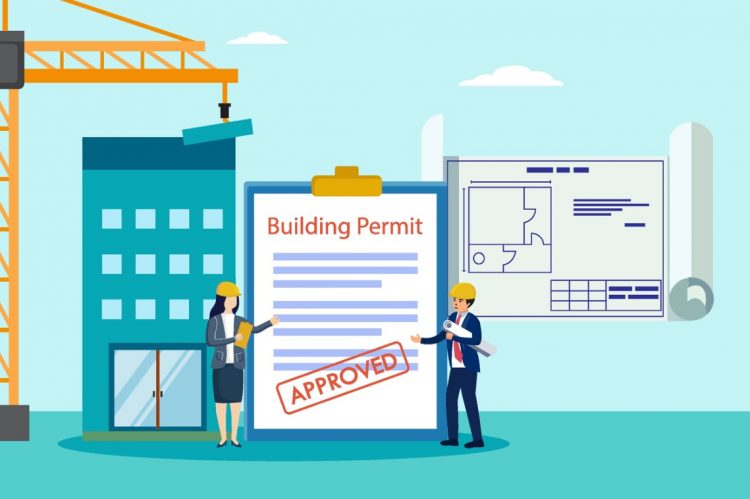Owning a home brings many opportunities to improve and add your personal touches. However, before making significant improvements, you need to get permission from the local authorities.
To do so, you need a building permit. Understanding what a building permit is and how it works is essential.
Local government agencies issue building permits as approval for work to begin on your property. Whether remodeling or having an addition constructed, a building permit will show that your plans conform to local zoning and construction standards.
The standards are designed to protect home residents and enforce zoning rules. The permit can address certain aspects of the construction, including framing, sanitation, and fire protection.
A buyer could back out of the sale if a home seller does not procure proper permits.
When do you need a building permit?
If you are planning some construction or renovation, you don’t necessarily need a building permit. If you are repairing or replacing, a permit isn’t usually required.
A permit might be needed if you are making significant changes, whether to the structure or mechanical systems in the home. You must apply to your local building department if you do the work yourself. When hiring contractors, they usually apply for the permits on your behalf, adding the costs to your charges.
For some jobs, the building department will require licensed professionals to carry out the work. This will be the case for gas lines in many areas.
Applying for a building permit
You must apply for a building permit if you want to handle the building project yourself. The process will look something like this:
- What permits do you require? Check with your local building department to find out if you need a permit and to get an application form. There could be multiple permits required to complete the work on larger projects.
- Complete the application form. Fill out the form and include all the information required. For construction projects, this may mean supplying drawings to the building department.
- Apply. You will likely need to pay permit fees when you do this, and if everything is in order, you will receive your permit.
- Posting the building certificate. During the build, the certificate may need to be displayed near where the work is being carried out.
- Inspector visits. At different stages in the construction, the progress needs to be inspected. When doing the work yourself, you must contact the inspector’s office to arrange the inspection when required. The certificate no longer needs to be displayed when the work has been approved.
Can you avoid a building permit?
If you have completed work on your home without a permit, there could be problems when you sell. It is too easy for homeowners to carry out construction projects without getting the required permits, and there are possible hazards.
Without a permit, you won’t have to worry about inspections or pay fees, and the project can still be completed to a good standard. However, it isn’t a good idea to avoid getting necessary permits.
When you sell the home without required permits, problems could be uncovered when the buyer has a home inspection. The inspector could find the work hadn’t been completed per the building code. This could mean redoing the construction to sell the property.
A thorough buyer’s agent could also discover non-permitting issues when performing due diligence on the property.
One of the more common improvements that some homeowners skip building permits is finishing a basement. Of course, adding a significant amount of square footage can increase the home value tremendously.
On many occasions, sellers will do this to avoid an increase in their tax assessment. Unfortunately, it can come back to bite the owners when it’s time to sell.
If serious damage happens due to construction not being to code, your insurance could refuse to pay. If a fire happens or water leaks, and it was because the work wasn’t to standard, you may not be covered.
Final thoughts on getting proper building permits
Skipping out on building permits is almost always a significant mistake. When you sell your home, it can easily be discovered, and you could be forced to go through the permitting process.
It is not an unreasonable request for a buyer to want to have assurances the property has all its work up to code.
Bill Gassett is a nationally recognized real estate leader who has been helping people buy and sell MetroWest Massachusetts real estate for the past 35 years.












